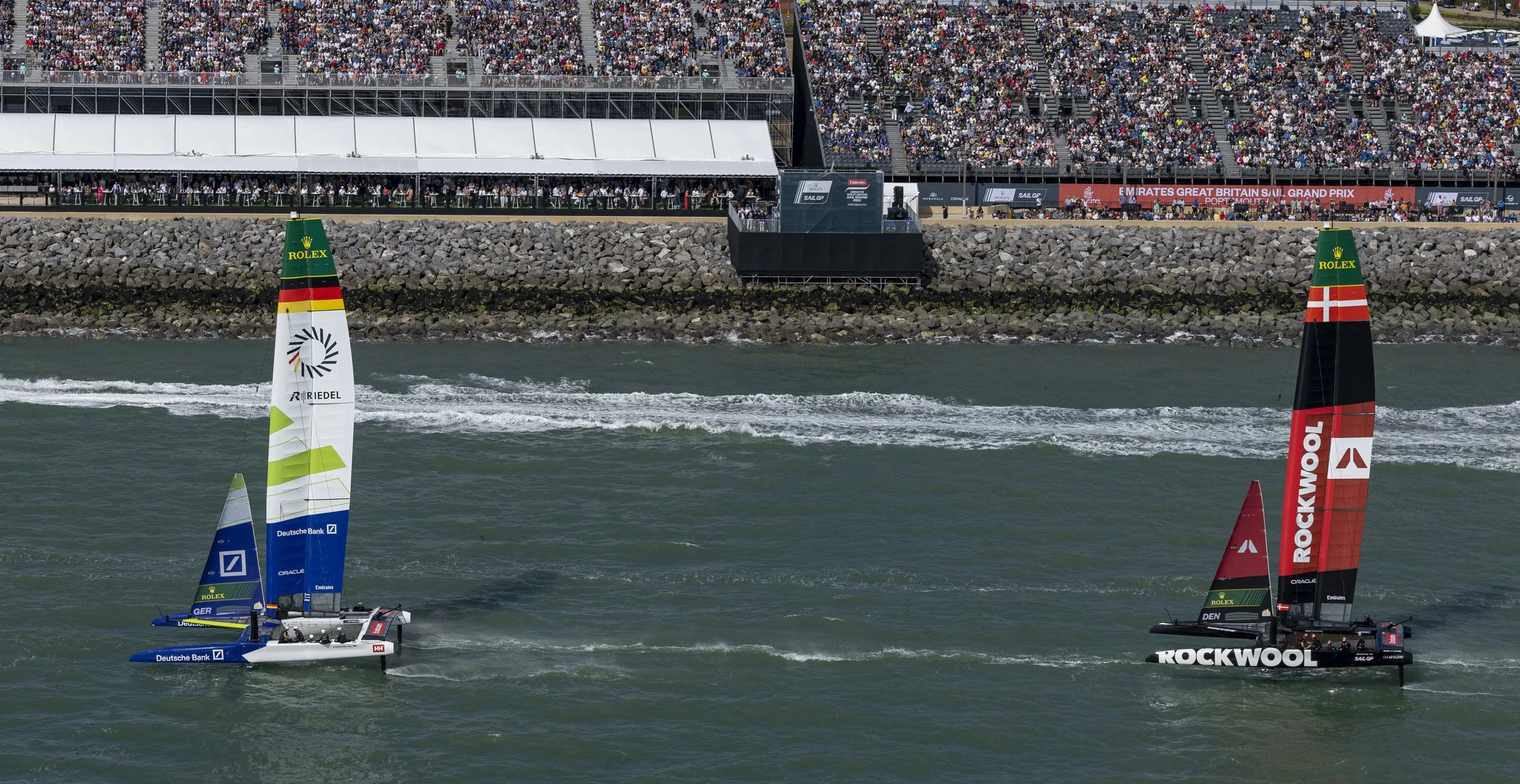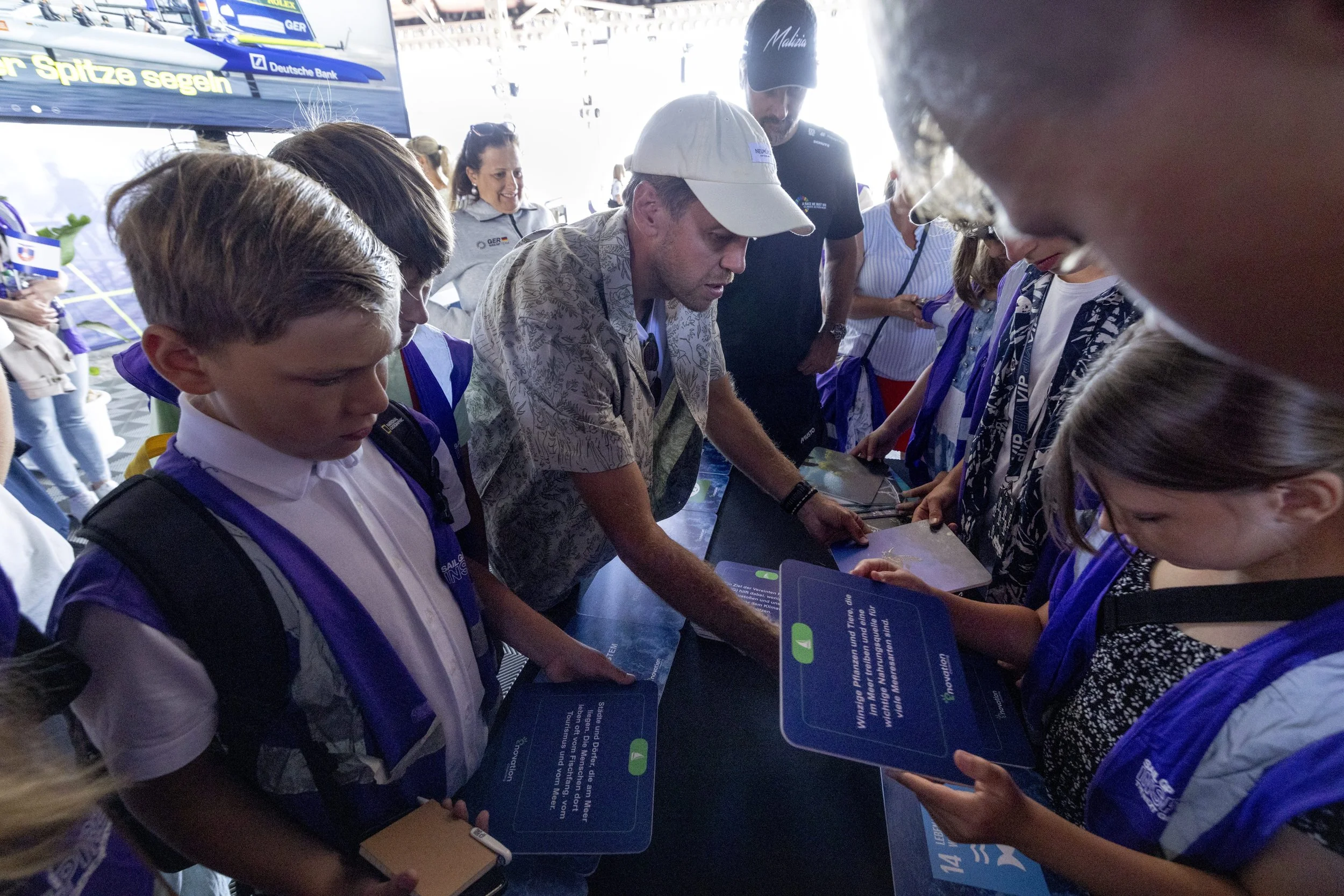Making Waves: Why Water Sports are Leading the Charge on Marine Sustainability
Photo by Germany Sail GP Team
Sport's ability to influence billions of people globally makes it a uniquely powerful platform to promote climate action and advance sustainable causes. While athletes, teams, and federations from across the sporting world use their influential position to raise awareness about sustainability issues, the water sports community is taking a leading role in the debate. This makes sense given that water sports competitions rely on healthy oceans and predictable marine conditions to maintain safety and sporting integrity. If the planet's oceans deteriorate further, the very future of water sports is at stake.
Within this climate-conscious sports bracket, Sailing has emerged as a sports sustainability leader through the evolution of SailGP, the global racing league describing itself as the world’s first “climate-positive sports league”. The league powers its events with renewable energy, operates waste reduction initiatives, and uses its platform to support scientific research and promote climate education.
SailGP’s Team Germany is the league’s standout sustainability performer. The team supports marine research by conducting environmental DNA (eDNA) sampling at race locations, helping scientists monitor marine biodiversity. eDNA refers to genetic material shed by organisms into their surrounding environment, such as water, soil, or air. Team Germany also runs youth engagement workshops in race locations, such as Portsmouth and Sassnitz, promoting practical climate education. The team’s co-owner and four-time Formula 1 World Champion, Sebastian Vettel, also actively uses his platform to promote ocean conservation.
Photo by Germany Sail GP Team
Alongside team and federation strategies, sailor-led initiatives, such as those by Olympic gold medallist Hannah Mills OBE, demonstrate how individual water sports athletes can inspire change. Mills is the Founder of The Big Plastic Pledge, which encourages athletes and fans to reduce single-use plastic consumption. Alongside British sailing legend Sir Ben Ainslie, Mills also spearheaded the Athena Pathway, an initiative aimed at improving diversity levels across the sport. The Pathway’s ethos of ‘People, Planet and Purpose’ has sustainability at its core and encourages athletes to use their influence and following to promote climate action.
Other water sports are also stepping up. The World Surf League’s (WSL) One Ocean initiative encourages surfers and fans to protect marine ecosystems by eliminating single-use plastic at events and funding local conservation projects. Since 2018, the WSL has cut waste generated by its events by 70% and reduced CO2 emissions by 49%. Similarly, rowing stakeholders are supporting events like the GB Row Challenge – a 3,500km rowing race that circumnavigates the UK’s coastline - which collects scientific data on marine microplastic pollution, biodiversity, temperature, and salinity in human-powered vessels to help inform conservation strategies.
Despite their growing sustainability credentials, water sports are not without environmental impact; fuel spills, plastic waste and habitat disturbance remain concerns, but industry leaders like SailGP demonstrate how sport can become part of the solution. With COP30 on the horizon, ocean action must remain central to climate negotiations as the future of water sports is inextricably linked to the health of the planet’s oceans.
Oceans have featured heavily on the COP agenda so far – we are excited to see whether water sports stakeholders can join the ocean conservation conversation in the final days of the conference to drive marine policy development and finance commitments.



